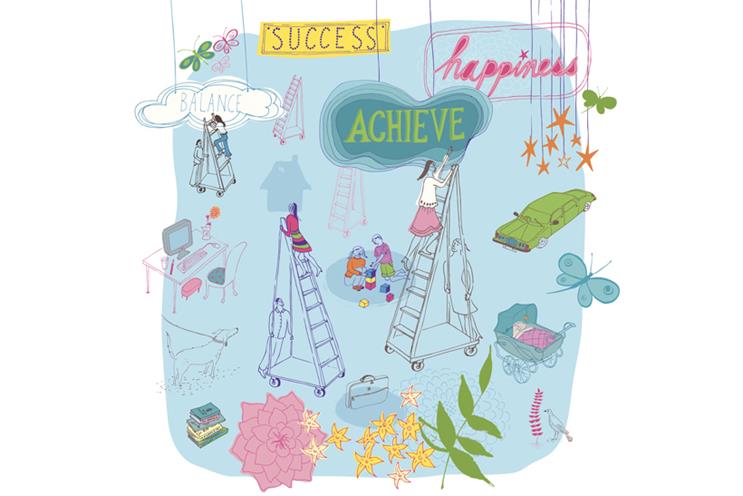
I’ve had time to think about work over the past few months because I haven’t been there. I’ve been with my mum as she reaches the final chapter of her battle against cancer.
My mum is really sick. It hurts her to talk, so often we just sit together as she dozes and I think. And I’ve thought a lot about work. When you are with someone you love who has not much time left, you start to think about how you are spending your time.
Time, the world’s most precious and finite commodity. Time, the commodity that no-one – especially, it seems, agency folk – ever has enough of.
Advertising agencies are unique beasts – fast-paced, exciting, full of challenges and characters but also full of tight deadlines, multiple clients to juggle and never-ending pitches that result in long nights and working weekends. Friends in other professions shake their heads in disbelief at the demands agencies make. You work like a banker or a lawyer, my banker and lawyer friends observe, but you don’t get paid like them. But we have so much more fun at work than you do, I reply. We didn’t go into advertising to make money, we went in to make ideas.
All too often, it seems that to succeed in our industry you have to bleed for your agency
And we do make ideas and culture. And it is fun but it is also demanding of time in a way that, as you start to age and build a family, feels particularly challenging. Sheryl Sandberg famously implored women to lean in, but what if you don’t much like what you’re leaning into? If you’re leaning into an expectation that life is there to be sacrificed upon the altar of advertising, maybe that’s something that just doesn’t work for you. Leaning out becomes an empowered choice, not a passive default.
I’ve certainly been told that this is just how advertising works. It is what it is. But what if you can’t do the nights and weekends at the drop of a hat? What if you don’t want to postpone the holiday again? What then? All too often, it seems that to succeed in our industry you have to bleed for your agency. If you’re not prepared to do that, then someone else coming up the ranks will. Goldman Sachs-style hours become an (unpaid) expectation rather than a personal choice. Bedtimes (ours or those of our children) are missed, gym sessions are skipped and dinner dates cancelled. So we comfort ourselves in the belief that our ideas are making "dents in the universe" and that they are well worth the sacrifice. Linds Redding, a Saatchi & Saatchi and BBDO copywriter, famously wrote a biting blog post on his deathbed (cancer too) in which he looked back at his life in advertising and said: "It turns out it was just advertising. There was no higher calling. We were just shifting product."
Personal lives often have to adhere to outmoded and inefficient working structures that require sacrifice
I believe we should call time on the myth of advertising’s higher calling. It’s a hard-working profession, not a life-or-death vocation. You shouldn’t need to bleed to succeed. We’re not, as I know full well, curing cancer. The professional expectations that are being placed on people are, I think, unsustainable in a world where we are all likely to have to work into our sixties or longer. Where are the older people in advertising? You have to have the stamina of a twenty-something to keep the pace in most ad agencies and that’s ridiculous. Our assets are our people, we all know that, but too often our industry uses young people like cannon fodder and burns out those with families or who have commitments outside the office. We’re facing a talent dearth of our own making.
We don’t need any more airbrushed case studies on work/life balance
The world has changed beyond belief in the past decade. The empowered immediacy of a swipe right on Tinder, the transparency of pricing on the easyJet app and the continual affirmation and feedback on a platform such as Facebook have changed our cultural expectations but I don’t think the agency world has kept up. We need to redesign agency work structures and organisations to better suit the needs of creative workers or we will find that they will simply vote with their feet and walk away.
From my vantage point of being temporarily out of the world of agencies, I’m worried that the people I see walking away fastest from our industry are women, often mothers, because the current structures seem too inflexible. Too often, personal lives have to adhere to outmoded and often inefficient working structures that, in the end, can require too great a family sacrifice.
"Work your way" was the theme of this year’s Wacl Gather, which focused on providing honest conversations on coping strategies, struggles and finding success on new terms. We don’t need any more airbrushed case studies on work/life balance. If anything, they make matters worse for women. The audience at Gather was primarily female but the implications and opportunities should be felt across the industry regardless of gender. The conversation about designing work that works for people is a critical one – one I hope agency chief executives will be following with interest and will act on with conviction.
Amelia Torode is the former chief strategy officer of TBWA\London and a member of WACL.
In loving memory of Naseem Khan OBE 11/8/1939 - 8/6/2017

